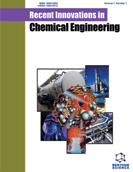Abstract
The quality assessment of water in term of organometallic compounds is one of the key tasks of modern environmental analytical chemistry. For this purpose a rapid and very sensitive method based on solid-phase microextraction (SPME) followed by gas chromatography-inductively coupled plasma-mass spectrometry (GC-ICP-MS) was developed and validated aimed at the determination of dimethyl-, dibutyl- and tributyltin in water samples. A divinylbenzene/ carboxen/polidimethylsiloxane fiber was used for the SPME sample treatment. Coupling of the ICP-MS with GC was accomplished developing an easy-to-fit in-house interface. In general optimal conditions were found by using the enhanced “hot plasma/protective ion extraction” introduction system. Validation was carried out in terms of limit of detection, limit of quantitation, linearity, precision and trueness. GC-ICPMS made possible the detection of the organotin compounds at ultratrace levels, quantitation limits ranging from 0.04 to 5 ng l-1. Linearity was established over two orders of magnitude for all the investigated compounds. Good precision was obtained both in terms of intra-day repeatability and between-day precision on two concentration levels (RSD lower than 15%). Recovery values ranging from 75±2% to 99±1.2% (n = 3) were calculated. The method was proved rapid, GC-ICPMS allowing for the separation of organotin species in less than 7 minutes. The method was used in routine analysis of environmental samples (fresh and marine water samples).
Keywords: Dimethyltin, Dibutyltin, Tributyltin, Solid-phase microextraction, Gas chromatography-inductively coupled plasma mass spectrometry, Home-made interface















